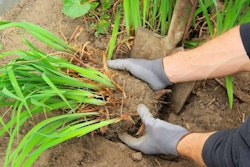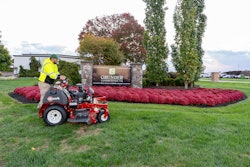 Bumblebees and native bees will be the focus of this pollinator research.
Bumblebees and native bees will be the focus of this pollinator research.Researchers focused on pollinator protection in ornamental horticulture have been awarded more than $2.8 million from the USDA National Institute of Food and Agriculture (NIFA) Specialty Crop Research Initiative (SCRI).
The money will be used to examine what landscape plants are attractive to pollinators so the supply of forage can be boosted for bees. Research will also analyze pesticide residue and plants most often targeted for integrated pest management so pesticide risks can be reduced.
According to an AmericanHort news release on the grant, the funds will be distributed over a period of two years to a collaborative research group led by Dr. Cristi Palmer, IR-4 Project. Additional money will be available for five years.
The Horticulture Research Institute (HRI) conducted five research projects in 2015 as part of the “Grow Wise, Bee Smart” pollinator stewardship initiative. Scientists involved in that work were able to generate the data needed to justify the SCRI grant objectives. They are also members of the research collaboration.
“AmericanHort and HRI see this project as critical toward providing our industry the guidance it needs to produce and maintain healthy plants and landscapes while also sustaining and improving the health of pollinators,” said Craig Regelbrugge, senior vice president of AmericanHort.
Another important focus of the research will be consumers’ preferences about plant labeling, education, and development of pollinator protective language. Researchers will concentrate on bumblebees and native bees because managed honeybees are rarely used in the green industry.
The work’s results are expected to benefit nursery and greenhouse growers, the landscape industry, garden centers and consumers.
USDA NIFA funded a total of 19 projects as part of SCRI, including a workshop to identify knowledge gaps for downy mildew on horticultural crops and brown marmorated stink bug management in specialty crops.









